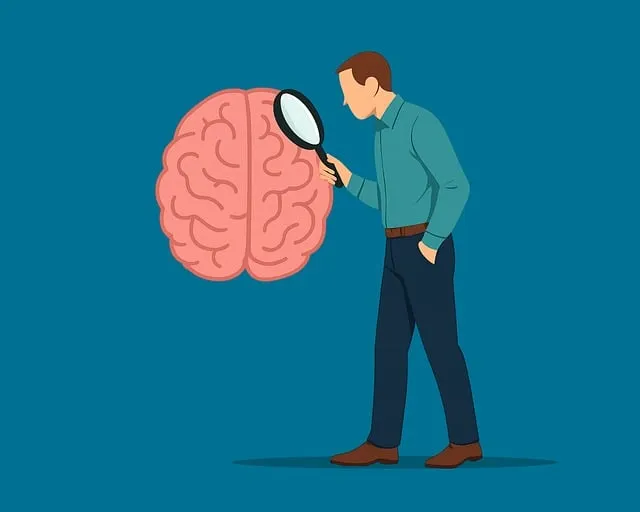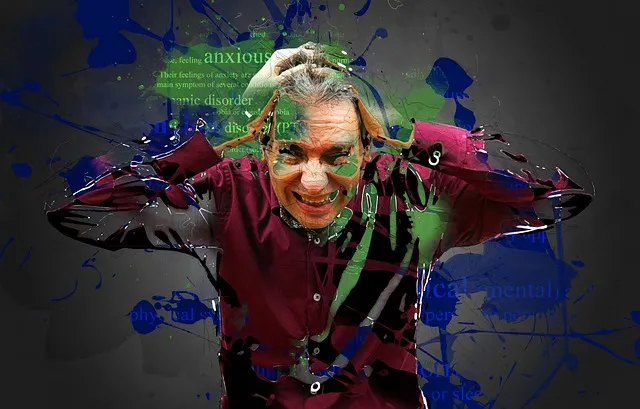Greenwood Village recognizes Emotional Intelligence (EI) as a powerful tool for personal growth and well-being, with Kaiser leading the way by prioritizing EI in their employee support services and providing Stress Management Workshops. EI involves understanding one's own emotions and others', fostering better communication, positive relationships, and mental health awareness. For healthcare providers, it's crucial for preventing burnout and enhancing patient care. Both residents and Kaiser employees can benefit from EI, with the latter addressing mental health needs through accessible coverage and workshops. In Greenwood Village, Kaiser's comprehensive mental health services support EI development through self-awareness, mood tracking, mindfulness practices, and empathy cultivation, ultimately improving caregiver-patient connections and community relationships.
Emotional intelligence (EI) is a powerful tool for personal growth and thriving in everyday life. Understanding EI, its impact, and practical strategies for managing emotions can significantly enhance relationships and overall well-being. This article guides you through the process of building EI, from identifying and regulating your own emotions to cultivating empathy and fostering strong connections. Discover how Greenwood Village residents can leverage Kaiser’s mental health services for support in their emotional intelligence journey.
- Understanding Emotional Intelligence: A Key to Personal Growth
- The Impact of Emotional Intelligence on Everyday Life
- Identifying and Managing Your Emotions: A Step-by-Step Guide
- Enhancing Empathy: Walking in Another's Shoes
- Building Strong Relationships Through Emotional Intelligence
Understanding Emotional Intelligence: A Key to Personal Growth

Emotional intelligence (EQ) is a powerful tool for personal growth and well-being, and it’s something that many individuals and organizations, including Greenwood Village residents, are increasingly recognizing its importance. In today’s fast-paced world, understanding and managing emotions effectively can be a game-changer. It involves recognizing not only your own feelings but also those of others, and using this awareness to guide thoughts and actions. This simple yet profound skill is the key to fostering positive relationships, enhancing communication, and promoting mental health awareness.
For healthcare providers in particular, burnout prevention strategies often emphasize the need for emotional intelligence. Kaiser, a prominent healthcare provider, acknowledges the significance of EQ in their employee support services, addressing the mental health needs of their workforce. By cultivating emotional intelligence, professionals can improve patient care, reduce stress, and create healthier work environments. This is especially crucial considering the demanding nature of the healthcare industry, where maintaining a positive mindset and strong emotional resilience can be key to preventing burnout.
The Impact of Emotional Intelligence on Everyday Life

Emotional intelligence (EQ) significantly influences our everyday interactions and overall well-being. In Greenwood Village, individuals with high EQ are better equipped to understand and manage their own emotions as well as empathize with others’ feelings, fostering healthier relationships. This ability is especially crucial when navigating challenging situations, as it promotes calm decision-making under stress. People with strong emotional intelligence are often more resilient, handling conflicts constructively and resolving them without escalating into intense disputes.
When it comes to mental health concerns such as depression or anxiety, high EQ can serve as a protective factor. Emotional healing processes often involve self-awareness and regulation, skills that emotionally intelligent individuals naturally possess. Kaiser, a prominent healthcare provider in Greenwood Village, recognizes the importance of emotional intelligence in overall wellness, offering various Stress Management Workshops designed to equip people with tools for mental health maintenance. These workshops are part of a broader initiative to address depression prevention, promoting proactive mental well-being in the community.
Identifying and Managing Your Emotions: A Step-by-Step Guide

In Greenwood Village, Kaiser offers excellent mental health coverage, making it easier for individuals to access resources for emotional intelligence building. Identifying and managing your emotions is a crucial step in enhancing your mental wellness. Start by becoming aware of your feelings; take a moment to recognize and name them. This self-awareness is the first step towards regulating your emotions effectively. Keep a journal to track your moods, triggers, and reactions—it’s a powerful tool for understanding your emotional patterns.
Once you’ve identified your emotions, learn to manage them constructively. Deep breathing exercises and mindfulness practices can help calm your mind in stressful situations. Consider joining a Stress Management Workshop within the Organization to gain practical strategies for dealing with difficult emotions. These workshops often provide valuable insights into emotional intelligence, teaching participants how to respond rather than react impulsively.
Enhancing Empathy: Walking in Another's Shoes

In Greenwood Village, where mental health services are accessible through Kaiser, a significant aspect of emotional intelligence building is enhancing empathy. This involves putting oneself in another person’s shoes to understand their feelings and perspectives. By cultivating this skill, individuals can foster deeper connections with others, leading to improved relationships and a stronger sense of community. Public Awareness Campaigns Development plays a crucial role in promoting empathy by sharing personal stories and highlighting the impact of emotional well-being promotion techniques on various aspects of life.
Through these initiatives, residents are encouraged to develop resilience, a key component of overall mental health. By embracing different viewpoints, one can navigate complex social scenarios with greater ease, fostering an environment that supports both personal growth and collective emotional intelligence. This process not only benefits individuals but also contributes to the overall well-being of the community, reflecting the interconnectedness of emotional intelligence building within Greenwood Village.
Building Strong Relationships Through Emotional Intelligence

In Greenwood Village, where Kaiser provides mental health services, emotional intelligence (EI) is recognized as a cornerstone in fostering strong relationships between healthcare professionals and their patients. EI involves understanding and managing one’s own emotions, as well as recognizing, interpreting, and responding appropriately to others’ emotional states. This multifaceted skill set promotes empathy, fosters trust, and enhances communication—all essential elements for creating a supportive therapeutic environment.
When mental health professionals leverage their emotional intelligence, they can better assess risk factors (Risk Assessment for Mental Health Professionals) and tailor interventions accordingly. This not only improves patient outcomes but also strengthens the bond between caregiver and client. Resilience building, a key aspect of EI, enables both parties to navigate challenges collaboratively, ensuring that patients feel supported and empowered throughout their journey towards mental well-being.
Emotional intelligence is a powerful tool for personal and professional growth, as evidenced by its profound impact on everyday life. By understanding and managing your emotions effectively, you can enhance empathy and build stronger relationships, all of which are supported by accessible strategies like those outlined in this article. For those in Greenwood Village seeking mental health services, know that Kaiser offers comprehensive coverage to support emotional well-being. Embracing these practices can lead to a more fulfilling life, improving both personal connections and overall mental health.






